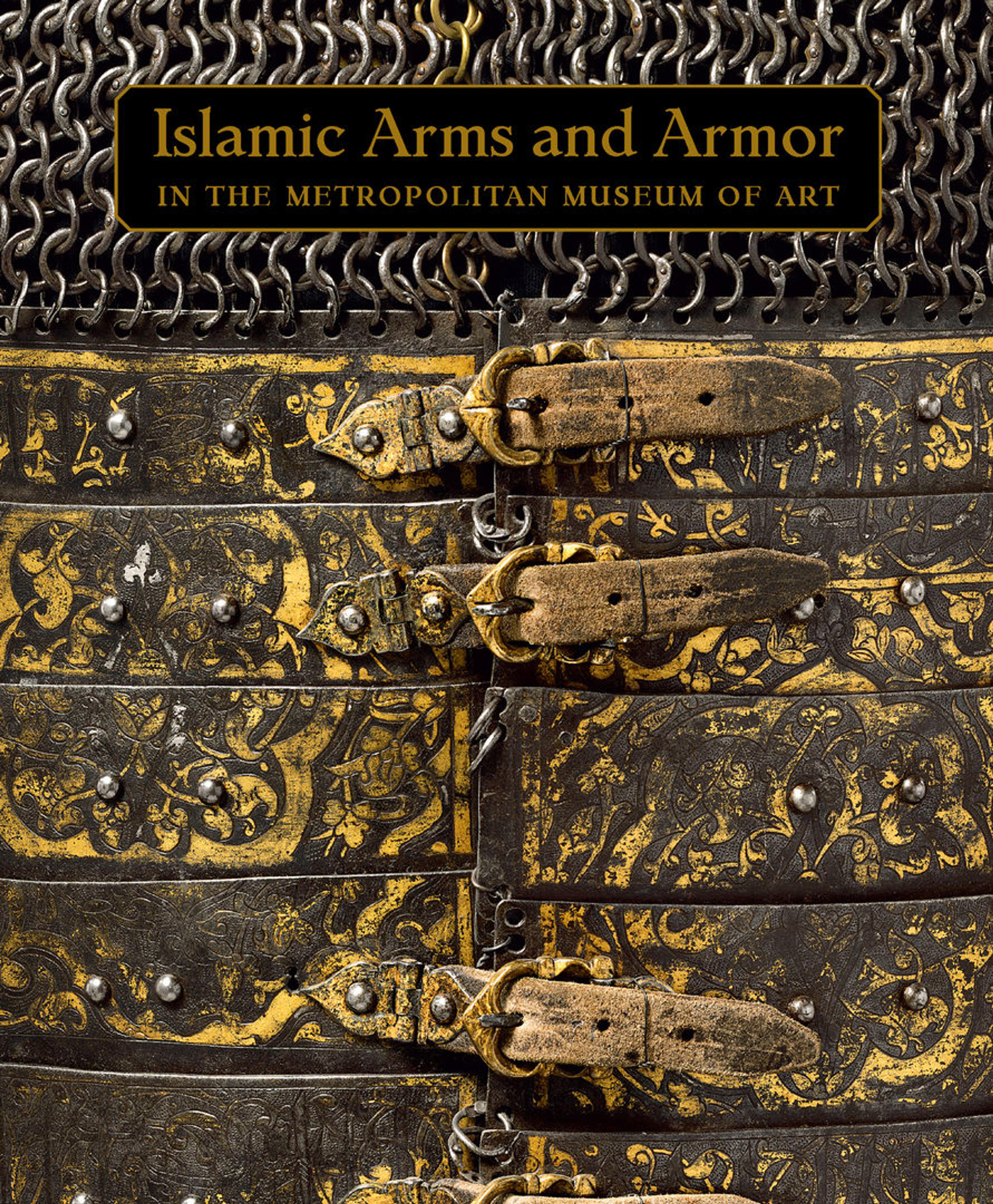Pair of Thigh and Knee Defenses
The inscription seen on the center of the knee piece is garbled, but is probably one of the benedictions or titles frequently found on armor. Although its significance is not known, the flower-shaped mark on the copper seal may be of topographical import.
Knee defenses such as this were usually decorated in the same styles and inscribed with the same types of inscriptions as those found on some Iranian, Anatolian, or Shirvani turban helmets and mail-and-plate armors. In addition, there exist a number of Mamluk examples with similar decoration, and defenses of the same type also appear in Mughal miniature painting.
Knee defenses such as this were usually decorated in the same styles and inscribed with the same types of inscriptions as those found on some Iranian, Anatolian, or Shirvani turban helmets and mail-and-plate armors. In addition, there exist a number of Mamluk examples with similar decoration, and defenses of the same type also appear in Mughal miniature painting.
Artwork Details
- Title: Pair of Thigh and Knee Defenses
- Date: 15th century
- Culture: Iranian or Turkish
- Medium: Steel, iron, copper alloy, silver, leather
- Dimensions: L. 24 in. (61 cm); W. 17 1/4 in. (43.8 cm); Wt. 2 lb. 9 oz. (1,175 g)
- Classification: Armor Parts-Knee Defenses
- Credit Line: Bequest of George C. Stone, 1935
- Object Number: 36.25.55a, b
- Curatorial Department: Arms and Armor
More Artwork
Research Resources
The Met provides unparalleled resources for research and welcomes an international community of students and scholars. The Met's Open Access API is where creators and researchers can connect to the The Met collection. Open Access data and public domain images are available for unrestricted commercial and noncommercial use without permission or fee.
To request images under copyright and other restrictions, please use this Image Request form.
Feedback
We continue to research and examine historical and cultural context for objects in The Met collection. If you have comments or questions about this object record, please contact us using the form below. The Museum looks forward to receiving your comments.
